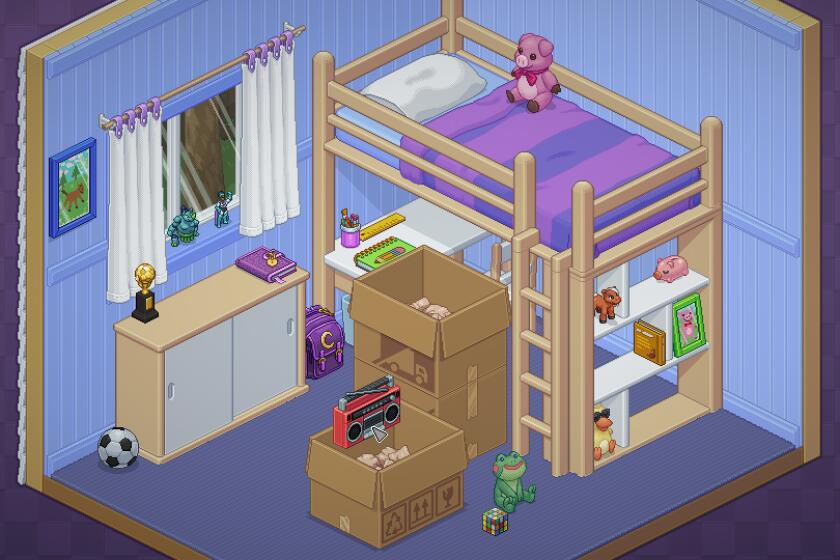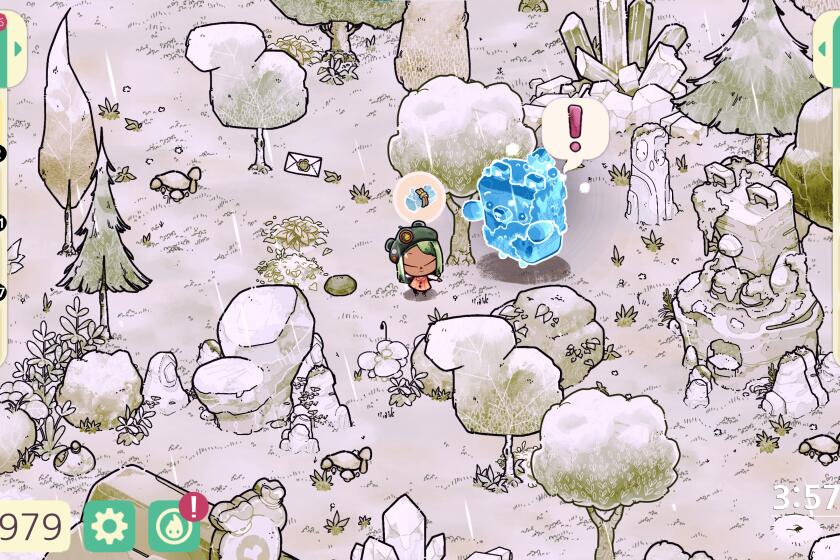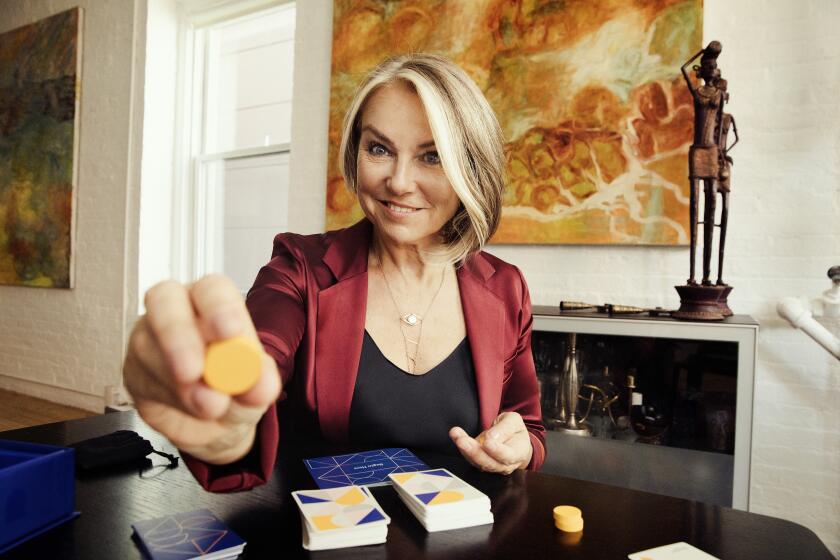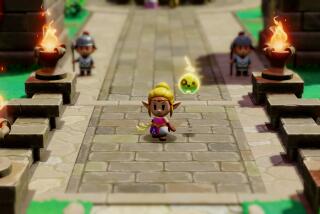‚ÄėPikmin Bloom,‚Äô an AR step counter to improve your daily walk, is so simple it‚Äôs magic
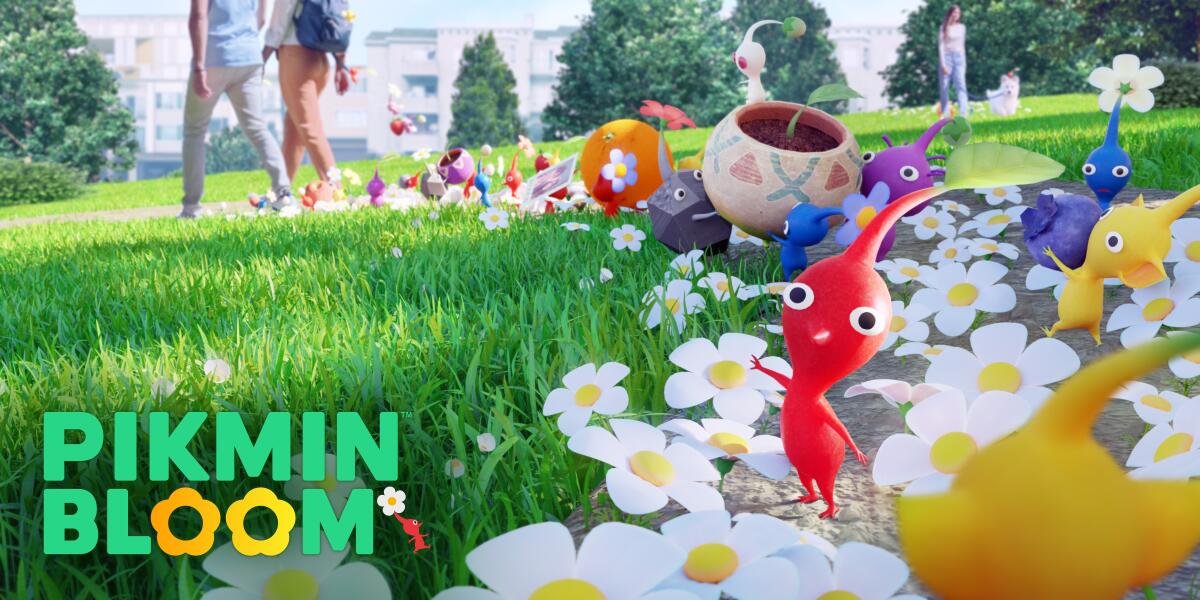
Confession from someone who writes about video games: At the start of the pandemic, games were a savior. They allowed me to participate in something rather than passively watch and kept my stressed-out brain occupied.
Today? That no longer works.
It’s not entirely the fault of video games.
Like most people I know in this late pandemic stage, my nonprofessional life feels overly stressful. I’m exhausted and burned out. I haven’t slept more than three straight hours in months. In turn, I’ve come to dread the very idea of going to bed, and thus too often I’m somewhat tired, somewhat irritable.
A confluence of 2021 events has left me in a state of constantly feeling overwhelmed. I‚Äôm disconnected from family, my cat nearly died, an attempt to start a relationship devastated me when it went south, and while I want to play ‚ÄĒ to feel free and silly ‚ÄĒ the last thing I want to do is learn a piece of entertainment.
No systems, no hours collecting virtual gear to earn upgrades, no fantasy tales removed from real life. Modern blockbuster video games of late are tiring me out, relying on players possessing a deep language for the medium and still confusing length and complexity with artistry. Too many are built on the tedious concept of gathering supplies and magically turning them into weapons.
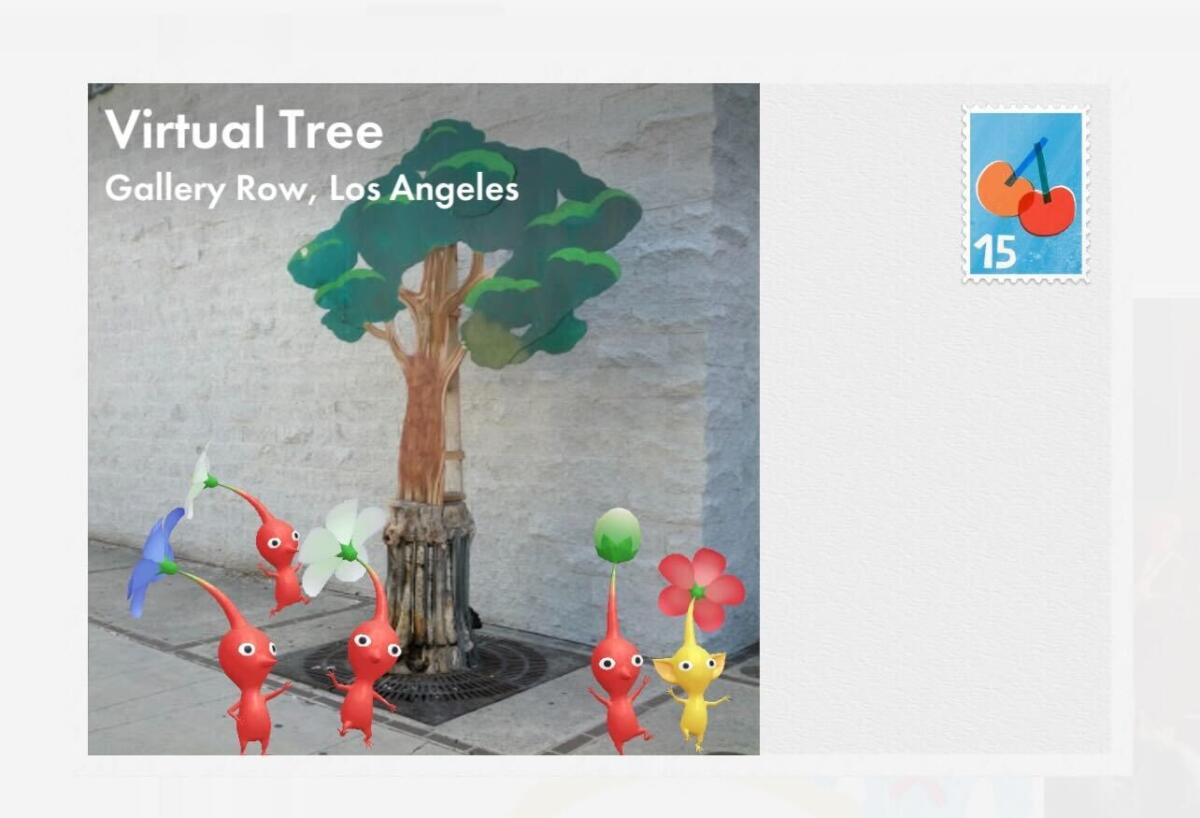
I haven‚Äôt abandoned games ‚ÄĒ I‚Äôve even tried to adopt the principles of play into my routine, which has helped. It‚Äôs simply that my mind, scarred from nearly two years of pandemic-induced trauma and loneliness, can only handle so many rules when it comes to a new game. Sadly, my default emotion these days is frustration.
I still believe that play can be a refuge. I’m thinking of the joy I felt with the light role-playing that was asked of me at many of the recent Halloween-focused immersive theater events. But here we are invited, often by the extended hand of an actual person, to step into a physical world and become our own protagonists.
I certainly love to play, as evidenced by the fact that I still go to Disneyland weekly. And on the subject of video games I restarted ‚ÄúSuper Mario Odyssey,‚ÄĚ the most brilliant game in the ‚ÄúSuper Mario‚ÄĚ series, and the one in which Mario and Peach deal with differing existential crisis. I‚Äôve also enjoyed the thoughtful ‚ÄúUnpacking,‚ÄĚ a melancholic and relaxing game about organizing a life that is one of my favorites of the year.
We‚Äôre constantly building the story of our lives, an evolving narrative that can be told through our possessions, a theme explored in ‚ÄúUnpacking.‚ÄĚ
And I‚Äôve been spending the last few weeks with a game that I think at long last reignited my love for interactive entertainment: ‚ÄúPikmin Bloom.‚ÄĚ
‚ÄúPikmin Bloom‚ÄĚ is the latest augmented reality venture from Niantic, the team behind ‚ÄúPok√©mon Go.‚ÄĚ I can already see people rolling their eyes. ‚ÄúPikmin Bloom,‚ÄĚ after all, is a pedometer that‚Äôs barely a game. But there‚Äôs beauty and playfulness in its simplicity. ‚ÄúPikmin Bloom‚ÄĚ doesn‚Äôt demand our time so much as seek to enhance an activity ‚ÄĒ walking ‚ÄĒ that we already partake in daily. It‚Äôs a tech overlay for what can be everything from a mundane action to an important part of our weekly exercise.
‚ÄúPok√©mon Go‚ÄĚ and its soon-to-end follow-up ‚ÄúHarry Potter: Wizards Unite‚ÄĚ had similar ambitions ‚ÄĒ or at least Niantic‚Äôs marketing department liked to talk up their physical activity-inducing benefits. Yet ‚ÄúPikmin Bloom,‚ÄĚ despite still using what is by now relatively standard augmented reality techniques ‚ÄĒ open your camera and see a character nearby ‚ÄĒ feels to me more confident than both, especially in relation to the too complex, too plot-focused ‚ÄúWizards Unite‚ÄĚ (at the time of its release I wrote that I wished it had come with footnotes as it was weighed down in Potter lexicon).
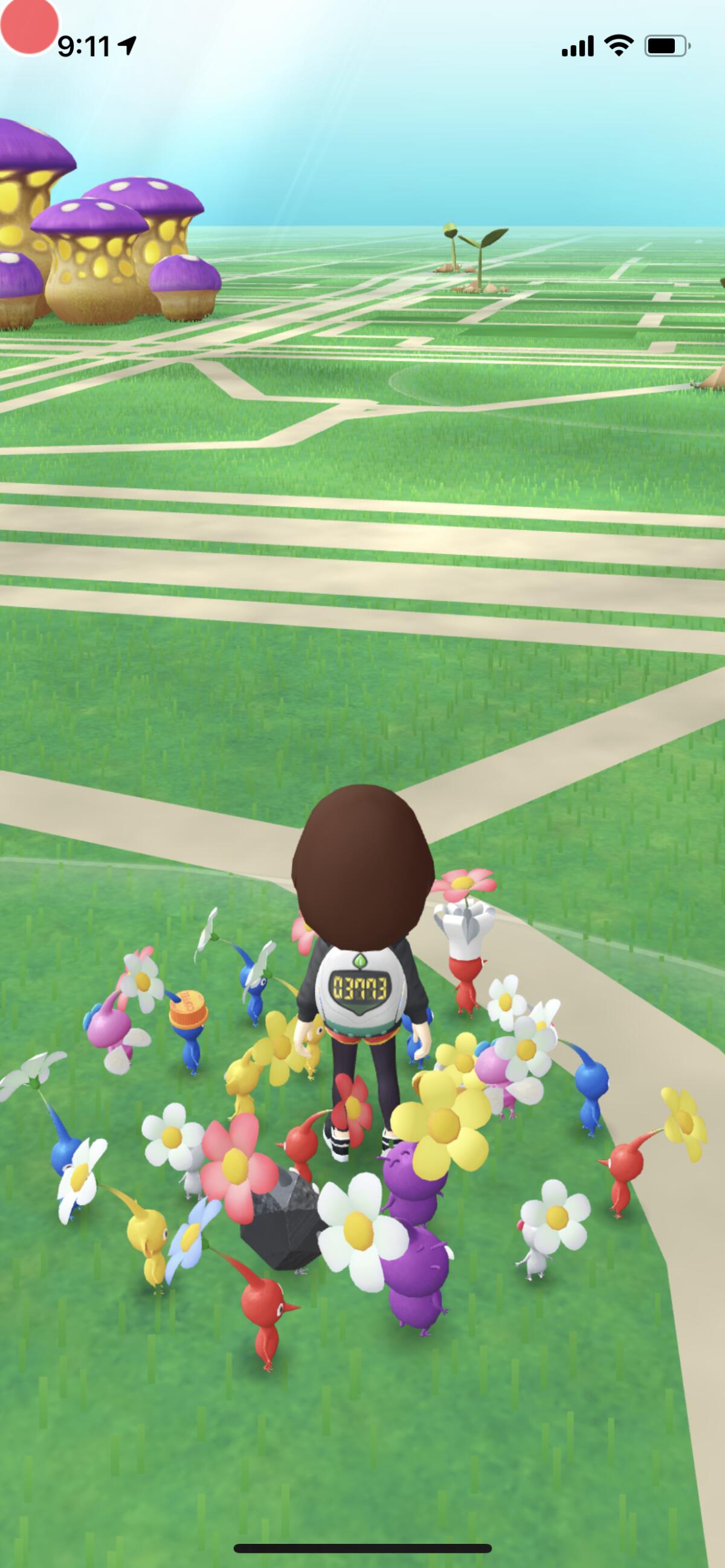
‚ÄúPikmin Bloom‚ÄĚ could have been more game-ified. I was nervous it would be. After all, the lesser-known Nintendo property it‚Äôs based on is a robust strategy game stealthily disguised in cuteness. On Nintendo consoles, the games gradually ramp up their difficulty as players direct Pikmin ‚ÄĒ plant-like creatures with water droplet bodies ‚ÄĒ to complete numerous tasks, deal with predators and figure out which color Pikmin is suited to the best errand. Another one of my favorite games of 2021, ‚ÄúThe Wild at Heart,‚ÄĚ is steeped in ‚ÄúPikmin‚ÄĚ influences.
But blissfully, no prior knowledge is needed for ‚ÄúPikmin Bloom,‚ÄĚ in which we simply walk and plant virtual flowers, and occasionally send our Pikmin out on tasks in our neighborhood. Doing so can result in them bringing us back apples, lemons or seedlings that grow other Pikmin. They‚Äôll often also snap some pictures on their virtual journeys, so we can see our Pikmin act as tourists in what for many players is probably an overly familiar setting.
Key to its success is that ‚ÄúPikmin Bloom‚ÄĚ focuses on the themes rather than the mechanics of its game console counterparts. The franchise, created by game design master Shigeru Miyamoto (‚ÄúSuper Mario Bros.,‚ÄĚ ‚ÄúThe Legend of Zelda‚ÄĚ) is ultimately a celebration of nature. ‚ÄúPikmin Bloom‚ÄĚ in particular encourages players to see plants for the vibrant, living beings they are, and emphasizes teamwork, environments and natural elements.
There are no proper battles in ‚ÄúPikmin Bloom,‚ÄĚ and I am relieved and hope that never changes. I simply enjoying booting the game up to look at how my downtown streets ‚ÄĒ stained hourly with new layers of litter, grime and, more recently, a bounteous supply of rat poison ‚ÄĒ have been turned into a virtual arboretum. In this sense, ‚ÄúPikmin Bloom‚ÄĚ is more than a simple pedometer encouraging us to reach a daily step goal; it‚Äôs a reminder to continue to seek magic in our surroundings, regardless of our emotional state or their physical reality.
It’s also arriving at a time when most mainstream conversations surrounding technology have been exhausting. Bored of hearing about the metaverse yet?
The charming and therapeutic ‚ÄúCozy Grove,‚ÄĚ inspired by ‚ÄúAnimal Crossing,‚ÄĚ is just one recent release in the ‚Äúwholesome games‚ÄĚ movement. Why the games resonate.
Whether you answered ‚Äúyes‚ÄĚ or ‚ÄúI don‚Äôt know what the metaverse is,‚ÄĚ that‚Äôs likely because no one, from Epic Games (‚ÄúFortnite‚ÄĚ) to the recently Meta-rebranded Facebook, has been able to create a narrative as to how or why an evolving, persistent online world is going to better our lives. We‚Äôve seen a lot of blanket statements that the virtual universe that is the metaverse is the result of our lives increasingly relying on tech and the internet, which, sure, true, but nothing that says how anyone plans to make this connected world smarter, healthier or more efficient than our current mess of a one.
‚ÄúFortnite‚ÄĚ makes a valiant argument that the metaverse is going to be a boon for corporate brands, a world where Marvel, the NFL, ‚ÄúLeague of Legends‚ÄĚ and car manufacturers all get cozy with one another ‚ÄĒ commercials that double as an in-game experience. Meta‚Äôs marketing has been muddled, largely focusing on virtual reality and virtual conferences, items that only benefit the privileged, and an ad campaign that indirectly argues that art museums are more impressive than Meta‚Äôs interpretation of them.
‚ÄúPikmin Bloom,‚ÄĚ however, while sliding under the radar of most fall game releases, presents a stronger argument for how tech can harmoniously amplify our realities.
The metaverse is hard to define because it‚Äôs not one thing so much as an acknowledgment that our lives, too, are always on ‚ÄĒ that is, plugged into some piece of tech or a virtual world. I quite like ‚ÄúPikmin Bloom‚Äôs‚ÄĚ thesis that our future isn‚Äôt defined by the virtual worlds we disappear into so much as the combination of the real and the digital to enhance the one we live in.
I recognize that may be in part due to my current mind-set, where my emotional exhaustion is simply craving play and conversations in the real world rather than sliding deeper into screens, texts, DMs, emails, swipes, social media and any other poor substitute for actually connecting.
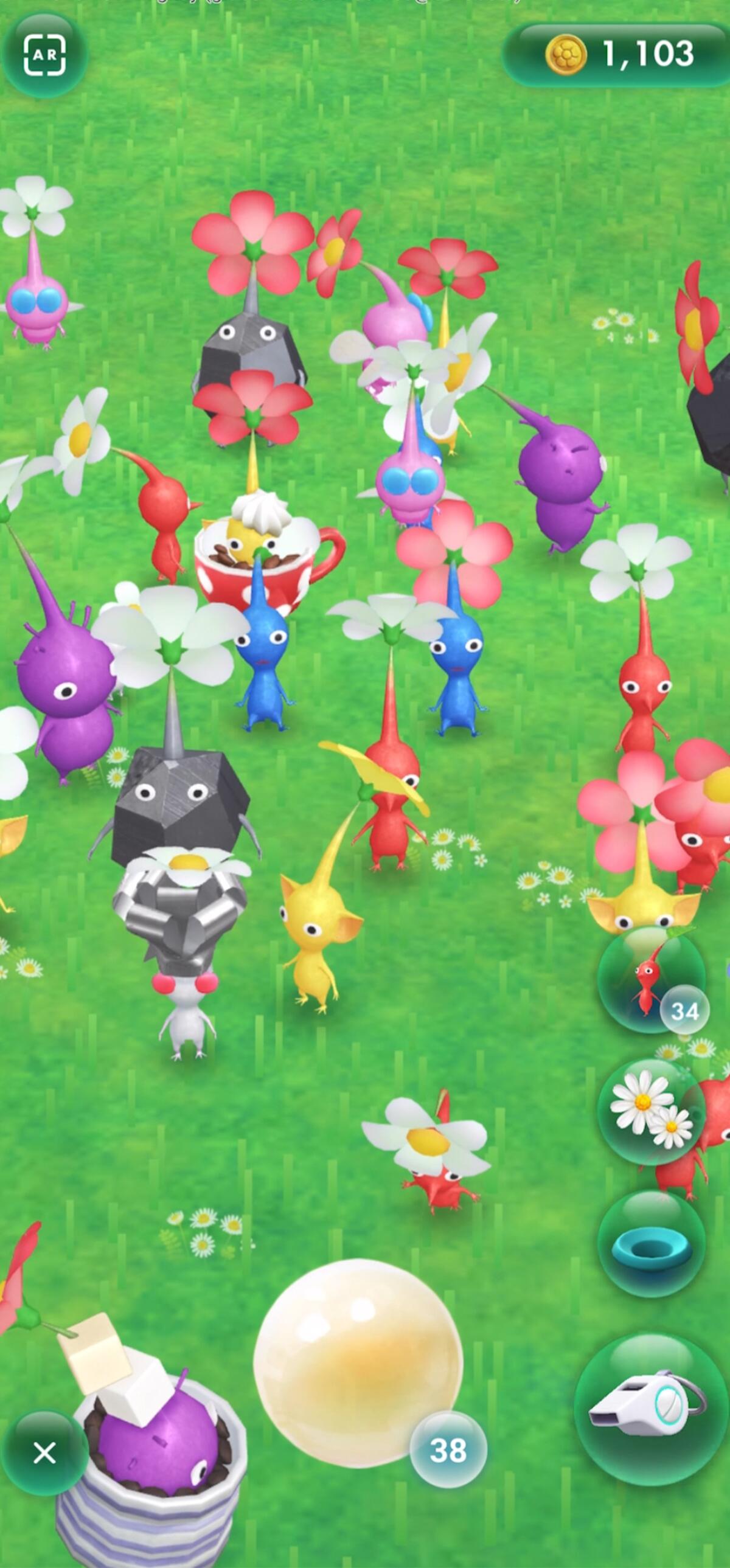
‚ÄúPikmin Bloom‚ÄĚ isn‚Äôt extremely communal, but when we walk we can plant flowers with others who may be doing the same and see them appear as avatars on our screen. A small thing, but a reminder that we connected and are out of the house beautifying a digital representation of our world. I like to think that it‚Äôs an argument that tech can be beneficial ‚ÄĒ walking! exercise! ‚ÄĒ and that even our online selves are interested in self-improvement.
I haven‚Äôt spoken too much about ‚ÄúPikmin Bloom‚Äôs‚ÄĚ augmented reality attributes, but that‚Äôs largely because the tech here isn‚Äôt much advanced from ‚ÄúPok√©mon Go.‚ÄĚ Yes, it‚Äôs cute to take a pic of Pikmin under my Christmas tree, but they‚Äôre more like stickers implanted in my world rather than characters truly interacting with it. The real-world digital mapping that Niantic has been fine-tuning is far more impressive, and that‚Äôs why I found this step-counter so appealing.
At the end of each day, we’re asked to rank it on a scale from frowny face to smiley face. While mine is mostly frowny faces these days, my Pikmin are still excited by the sight of a lemon and eager to show me a picture they took in front of a Spring Street mural while out grabbing a green apple. Adding gamification techniques to a pedometer is not an original idea, per se, but sometimes we need a reminder that our world is full of wonder rather than a notification to simply stand up.
Now I find myself stopping wherever my Pikmin stopped and looking more closely at the local building or monument where they chose to snap a pic. This weekend after a trip to the farmers market I also found myself taking a moment to admire the fruit I bought and imagined its journey to my home. This game is awfully excited about apples, for instance, so I suddenly found myself more in tune with their colorization patterns.
Ultimately, what I found with ‚ÄúPikmin Bloom‚ÄĚ is the reminder that right now I don‚Äôt want a game to show me a new world; I want a game to rekindle my love for my own.
'Pikmin Bloom'
An interview with Esther Perel ‚ÄĒ the psychotherapist behind the popular podcast ‚ÄúWhere Should We Begin?‚ÄĚ and now a game developer ‚ÄĒ turns into a therapy session.
More to Read
The biggest entertainment stories
Get our big stories about Hollywood, film, television, music, arts, culture and more right in your inbox as soon as they publish.
You may occasionally receive promotional content from the Los Angeles Times.
